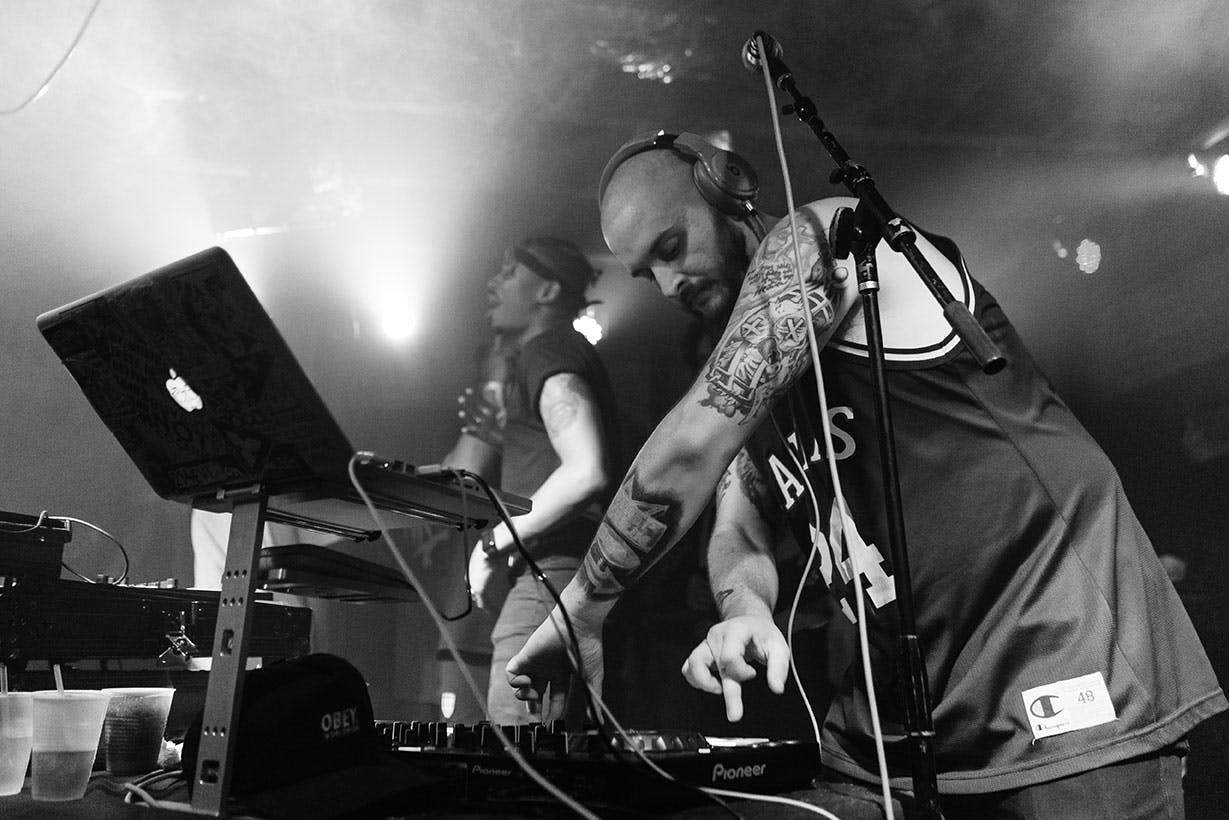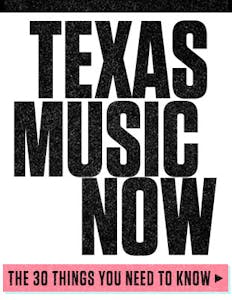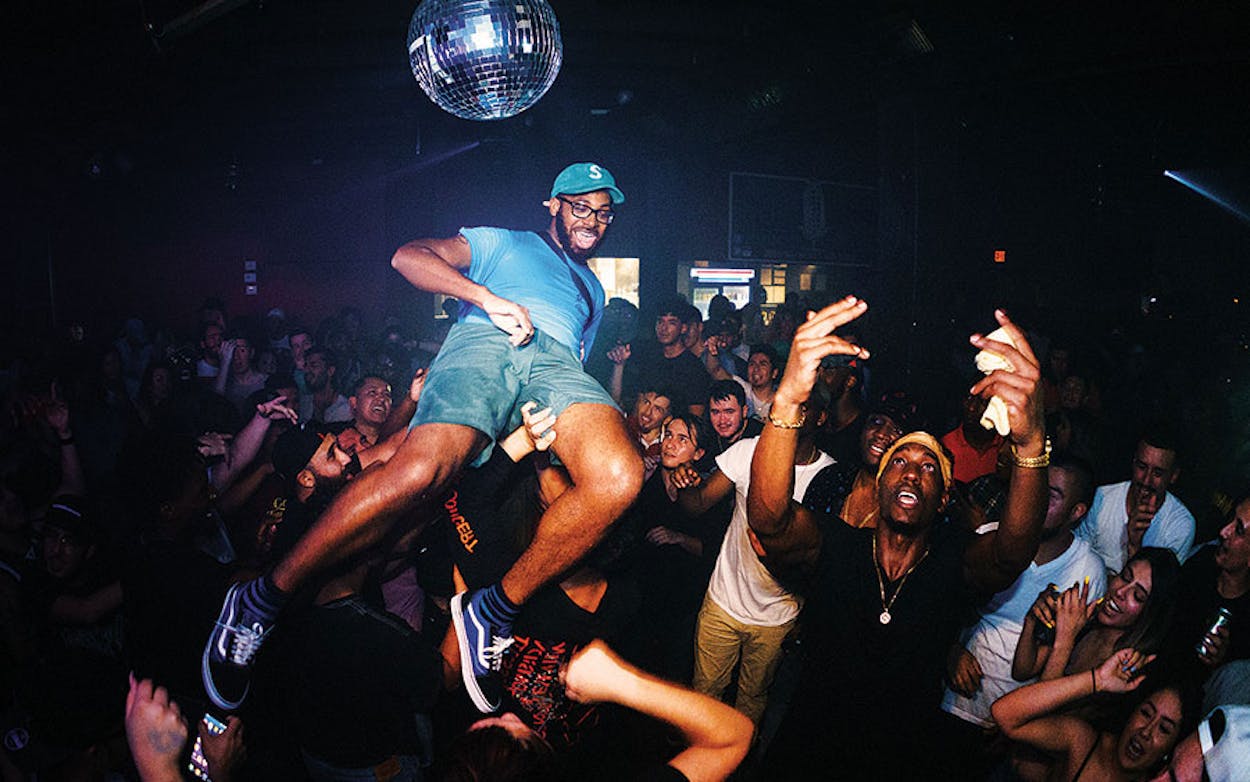This article is part of our November 2017 issue, which features a comprehensive look at Texas music.
Deep Ellum, once a haven for outsiders and intrepid music aficionados, is in the process of being spruced up for the well-heeled set, who bring with them posh storefronts and rising club profits. But longtime Deep Ellum regulars—aware that the energy that grew around the district’s popular underground parties a few years ago hasn’t been reproduced in the clubs—want to ensure they still have a role to play in carving out the city’s musical niche. On a Sunday evening this spring, at a weekly DJ show called [ALL/EVERYTHING] at the venue RBC, Tommy Jay, co-founder of a once-thriving warehouse party and concert series called We Are Dallas, leaned against a wall outside, near the club’s door. “It’s very hard to find spots that cater to our culture,” he said. “My thing is, we just need a night that’s catered to us.”
The [ALL/EVERYTHING] event, which is hosted by rapper and producer Blue, the Misfit, and his longtime collaborator, John Stewart, launched in late February 2016 around the concept that music by a single major artist, like Drake, Beyoncé, or Kanye, would be featured for the evening. Stewart and Blue weren’t sure if the idea would take, but within months the series was attracting anywhere from three hundred to seven hundred people each night. (They have since taken the party nationwide, to cities such as Los Angeles and New York City.) “We like to call them culture parties,” said Blue. “It feels different [from other DJ shows]. You could go to our event and then back-door it with an Uptown event and it’s not the same vibe. This is gritty. All the rappers come to this party, all the fashion gurus.”

A few years ago, a wealth of pop-up parties in warehouses and unconventional music spaces—few of them technically legal—spread across the city, particularly in or near Deep Ellum. Pop-up shows offered artists and DJs an outlet to perform without shouldering the burden of janky rap-promoter tricks (such as asking a local act to sell a bundle of tickets in order to open for a touring show), and soon afterward, hip-hop fans were enjoying a full-blown scene. Taking note of the moment, the national media shone a spotlight on the best of Dallas hip-hop, which included acts like Blue; the Outfit, TX; Sam Lao; BeMyFriend; G.U.N.; the IRAS collective; Crit Life; and Justus. Naturally, a citizenry was born. “It was a great time that we had,” Blue said, chuckling, “but the fire marshal shut that shit down.”
 Which is why [ALL/EVERYTHING] is so important right now. While a bill that includes a who’s who of Dallas hip-hop is an increasing rarity, the fixtures in the scene gather here weekly just as they did at the spaces that have since closed, conjuring the spirit of that renaissance era. Onstage at the RBC, Stewart and Blue took turns spinning Pharrell Williams anthems and non-canon tracks like “Get Lucky” and “Hollaback Girl.” Then Stewart spotted some local rap heroes and brought the music to a halt. “Before we proceed,” he said, “shout-out to the young legends from Dallas, the Outfit, TX.” He motioned to the act’s members: Dorian Terrell and Jayhawk Walker, who mugged as they climbed up the stairs onto the stage while Mel Kyle, the most eccentric of the group, beamed like the Cheshire cat, showing off his gold grill. “Rap is one of those things that has to be grassroots,” Kyle said later that night. Looking around the room, that foundation was there—and it could grow into something bigger. It just might take some time for the acts to find their way back into the spotlight.
Which is why [ALL/EVERYTHING] is so important right now. While a bill that includes a who’s who of Dallas hip-hop is an increasing rarity, the fixtures in the scene gather here weekly just as they did at the spaces that have since closed, conjuring the spirit of that renaissance era. Onstage at the RBC, Stewart and Blue took turns spinning Pharrell Williams anthems and non-canon tracks like “Get Lucky” and “Hollaback Girl.” Then Stewart spotted some local rap heroes and brought the music to a halt. “Before we proceed,” he said, “shout-out to the young legends from Dallas, the Outfit, TX.” He motioned to the act’s members: Dorian Terrell and Jayhawk Walker, who mugged as they climbed up the stairs onto the stage while Mel Kyle, the most eccentric of the group, beamed like the Cheshire cat, showing off his gold grill. “Rap is one of those things that has to be grassroots,” Kyle said later that night. Looking around the room, that foundation was there—and it could grow into something bigger. It just might take some time for the acts to find their way back into the spotlight.







